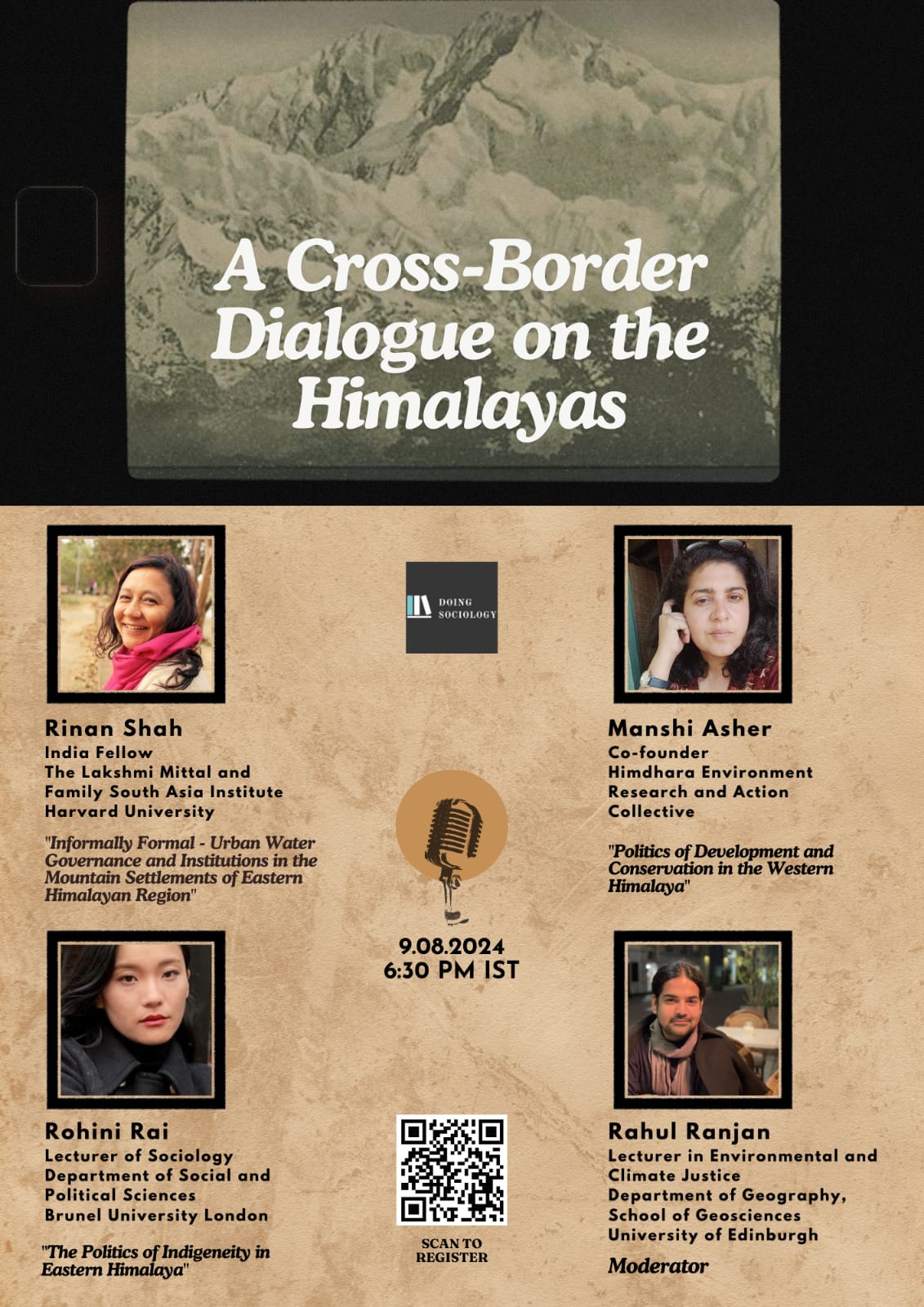Rahul Ranjan
Lecturer in Environmental and Climate Justice
Moderator
Department of Geography, School of Geosciences University of Edinburgh Moderator Rahul Ranjan is a writer and an Assistant Professor in Environmental and Climate Justice at the Department of Geography, School of Geosciences, University of Edinburgh, Scotland (UK). Over the decade, he has ethnographically worked on the longstanding conflict between social movements, Indigenous peoples’ struggles and extraction politics in India. This research culminated in his book: “The Political Life of Memory: Birsa Munda in Contemporary India”, published by the Cambridge University Press in 2023. He is more generally interested in grief, environmental movements, climate change and the politics of Knowledge. He has an upcoming volume he edits: “Crisis at the Margin”, Routledge press, London, 2024.
Manshi Asher
Co-founder Himdhara Environment Research and Action Collective
Manshi Asher has been associated with diverse organizations as a facilitator, campaigner, researcher and writer since 1998. A large part of her work has been environmental justice issues with a focus on forest, land and water rights. In 2009 she co founded the Himdhara Collective to extend support and solidarity to mountain communities struggling to protect their landscapes and livelihoods. She found her home in Kandwari village in the lap of the Dhauladhars where she has been living for the last decade and a half.
Politics of Development and Conservation in the Western Himalaya
Rinan Shah
India Fellow
The Lakshmi Mittal and Family South Asia Institute Harvard University
Rinan Shah is a postdoctoral fellow at the Lakshmi Mittal and Family South Asia Institute, Harvard University at their Delhi office. Her work engages with the question of thinking/rethinking water governance in the mountainous landscapes which are marginalized politically, socially, environmentally and economically in a rapidly urbanizing world with uncertain and intense ecological calamities. Her research draws from a rights-based approach to natural resources on the principle of equality and the capability to pay or participate. Her post-doc project seeks to understand the territorialities of governance boundaries of spaces and their definitions, laws and everyday practices, and the creation of inequality using a gendered framework. She received her PhD in 2023 from Ashoka Trust for Research in Ecology and the Environment, Bengaluru. Her thesis attempted to disentangle the drivers of domestic water scarcity in the volumetrically “water-rich” Eastern Himalayan Region where the communities have been facing water scarcity for decades.
Informally Formal – Urban Water Governance and Institutions in the Mountain Settlements of Eastern Himalayan Region
Rohini Rai
Lecturer of Sociology
Department of Social and Political Sciences
Brunel University London
Rohini Rai is a sociologist of race, ethnicity, migration, and racism and is currently a Lecturer in Sociology of Race at Brunel University London. Her areas of research include racialization and racism in the UK and in relation to Northeast India and Eastern Himalayan borderlands. Her current project, funded by the British Academy and partnered with the Royal Geographical Society- with the Institute of British Geographers (RGS-IBG), engages with the UK-based indigenous Himalayan diaspora communities from Nepal and Northeast India (Sikkim and Darjeeling). Prior to this, she was involved in an ESRC-funded project examining ‘decolonisation’ and ethnic inequalities in UK higher education at the University of Manchester. Outside academia, she works with communities as the co-founder of the Critical Himalayan Collective.
The Politics of Indigeneity in Eastern Himalaya
